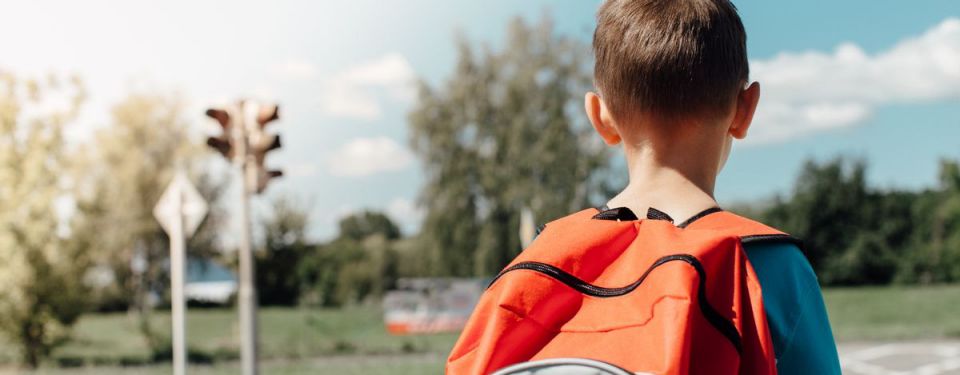
Children can sometimes be accosted by people they do not know on their way to school or elsewhere. Here is some advice about how children should react in such situations and how parents can prepare their children for potentially dangerous situations.
Listen: Take the time to talk to your child every day. It is important for your child to know that they can tell you at any time about experiences they have had, how they feel about things and any worries they have. Respect and reassure your child when they describe the bad experiences and sad moments in their day. This will make it easier for your child to interact with you and share information.
Talk: Try to engage a dialogue with your child and show them how to react if a potentially dangerous situation arises. Children have to learn how to recognise dangers so that they can react correctly in an emergency.
Practise: Regularly repeating the instructions and advice you give your child can help them react appropriately. However, be careful not to confuse or upset your child.
Preventive behaviour
- Always in a group: Whenever possible, children should always go to school or the playground in groups, not alone.
- Stick to what has been agreed: Teach your child that it is important to be punctual. Explain to your child that they have to take the agreed route to and from school and that they have to arrive at home or another place at the agreed time. It is worth remembering in this respect that children follow their parents' example: so set a good example. If you go out, tell your child that you are going and how they can reach you if need be, and who to contact if they can't reach you.
- Being self-confident: It is important that children be treated with respect and that they be self-confident. Children also have to learn to say no to adults they do not know - it is important that they do not feel obliged to talk to strangers or to give them information.
- Never open the door to strangers: Children must not under any circumstances answer the front door if you are not at home and open it to strangers.
What to do if a potentially dangerous situation occurs?
- Keep their distance
Children have to learn to stay away from strangers' cars and not to respond if someone calls over to them. If someone calls them over, they must not go up to the car. Instead they should try and stay as far away as possible from the vehicle. - Ignore anyone who calls over to them and never get into an unknown car
Attempts to engage a conversation must be ignored and children must continue on their way as if nothing had happened. They must not accept gifts from strangers and a child must not get into a stranger's car under any circumstances. - Keep going and shout
Teach your child that they must not stop walking if someone tries to intercept them, but continue on their way. If that is not possible, the child must shout out loud or ask other adults for help. - Know where the "safe" places are
It is important that children know where to go to get help. The following possibilities can be taught: go into a shop and tell the staff what has happened; go somewhere where there are a lot of people; ring the doorbell at a house and tell the adult who comes to the door what has happened. - Call 113
Children must know the emergency number, 113. Teach them that in an emergency, they can call this number, free, at any time.
What to do if your child tells you about a potentially dangerous situation?
- Stay calm
If your child tells you that they have been in a potentially dangerous situation where they were threatened or intercepted by a stranger, above all try to stay calm and reassure your child. Show them that they are safe now and praise them for being honest and telling you about it. - Reassure the child
Believe your child and listen carefully to them, without being critical. Avoid comments such as "I've always told you not to talk to strangers" - it's counterproductive. - Contact the Police
In an emergency, contact the Police immediately by calling the emergency number, 113. The necessary action can then be taken immediately.

